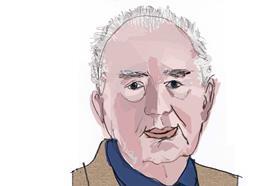At least three daughters of the 1930s nightclub queen Kate Meyrick followed in her profession. Three also married peers of the realm. In 1926 Dorothy Evelyn, known as Polly, married 19-year-old Lord de Clifford, whom she met at her mother’s Gaiety Club. De Clifford feared his parents would not consent to the marriage and so gave false details. For this he was fined £50 but the marriage stood and, for some years, seems to have been happy.

In 1928 the marriage of Ethel Meyrick, known as May, to the 14th Earl of Kinnoull was announced with a disclaimer by the earl. ‘Our future plans are not yet decided but I think I can say for certain that we shall disassociate ourselves from the nightclub business.’ Yet within weeks they were running the Richmond Club in Soho.
Then in 1935 Lord de Clifford became the last peer to be tried by his fellow peers. There had been no similar trial since 1901 when the 2nd Earl Russell had been convicted of bigamy, receiving three months. Jack de Clifford’s acquittal for the manslaughter of another driver killed in a car crash was rather briefer, with little evidence given and by accounts something of a sham. All rather different to the fictional trial by peers which forms the climax to Dorothy L. Sayers’ Clouds of Witness (1927).
This was eclipsed, however, by the marriage of Irene to the Earl of Craven in 1939 after a whirlwind 12-hour courtship. His Lordship, described in his subsequent suit for nullity, as suffering from the first stages of alcoholic poisoning, had met Irene at the Gaiety. Marriage was discussed and the next morning they married at St Peter’s, Pimlico. They parted two days later.
His Lordship then brought a nullity suit on the grounds that he had been so drunk he could not give consent, claiming also to have been kept away from his family by the Meyricks. This the judge did not accept because he had bought a ring that morning.
Irene succeeded in her counter-petition for the restoration of conjugal rights. A daughter was born in January 1940.
James Morton is a writer and former criminal defence solicitor































No comments yet